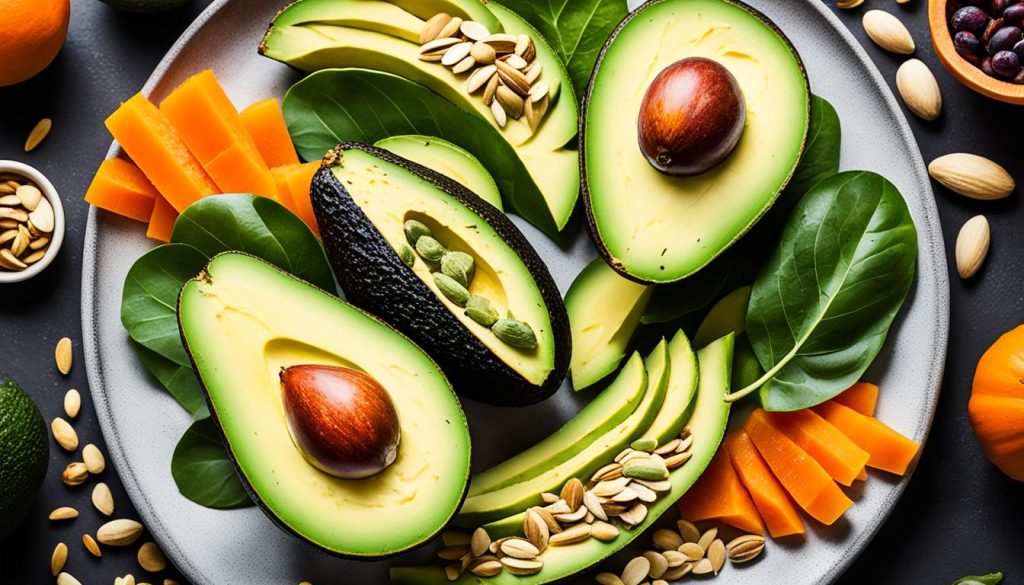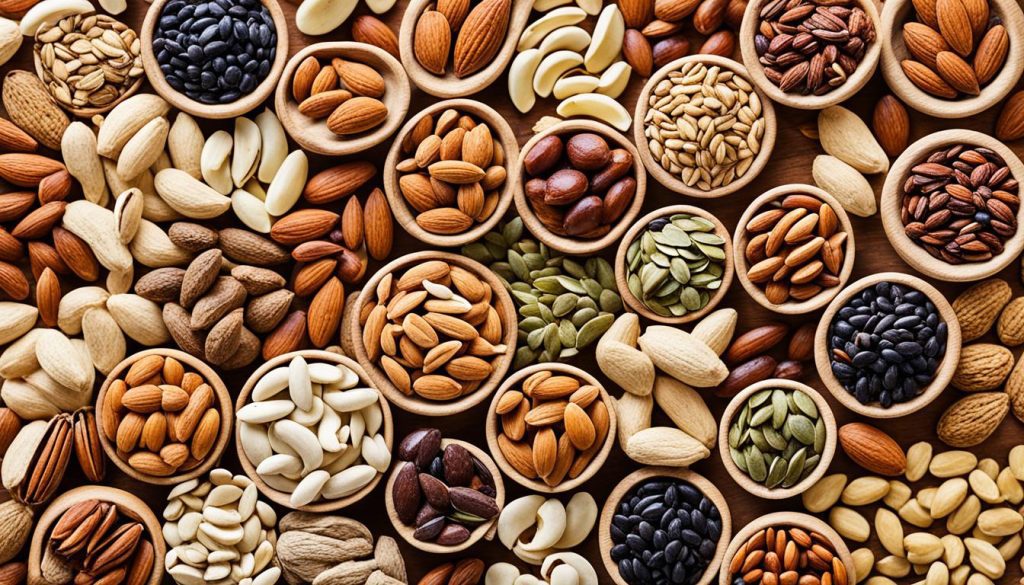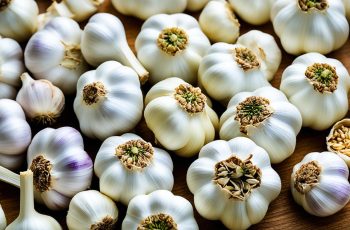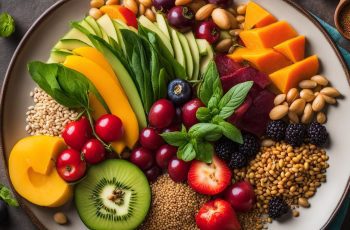As an individual specializing in health and nutrition, I often come across concerns about nutrient deficiencies in people’s diets. One mineral that frequently falls under the radar is magnesium. Magnesium is an essential mineral that plays a vital role in our overall health, contributing to numerous chemical reactions in the body. Unfortunately, many people do not meet their daily recommended intake of magnesium, which can lead to various health issues.
The good news is that there are numerous delicious and nutrient-dense foods that are rich in magnesium. By including these foods in your diet, you can easily boost your magnesium intake and support your overall well-being.
Magnesium Rich Foods You Need
- Dark chocolate is not only a delectable treat but also an excellent source of magnesium.
- Avocados are not only creamy and nutritious but also contain a significant amount of magnesium.
- Nuts and seeds, such as almonds and cashews, are convenient snack options that are packed with magnesium.
- Legumes, including lentils and beans, are not only rich in protein but also provide a good amount of magnesium.
- By incorporating magnesium-rich foods into your diet, you can ensure you meet your daily recommended intake and enjoy the numerous health benefits associated with adequate magnesium levels.
Dark Chocolate – A Delicious Source of Magnesium
When it comes to satisfying your sweet tooth while boosting your magnesium intake, dark chocolate is a perfect choice. Not only does it offer a delightful flavor experience, but it also provides significant amounts of magnesium.
A 1-ounce serving of dark chocolate contains approximately 15% of the daily recommended intake of magnesium, making it a convenient and delicious way to incorporate this essential mineral into your diet.
But the benefits don’t stop there. Dark chocolate is also rich in antioxidants, which have been linked to numerous health benefits. These powerful compounds help protect against cell damage and promote heart health, among other things.
So, the next time you’re craving something sweet, reach for a square of dark chocolate. Not only will you satisfy your taste buds, but you’ll also be treating your body to a healthy dose of magnesium and reaping the antioxidant benefits that can contribute to your overall well-being.
Avocados – A Creamy and Nutritious Magnesium Source
When it comes to nutrient-dense foods, avocados take the spotlight. Not only are they delicious, but they also offer numerous health benefits, including being a great source of magnesium.
A medium-sized avocado provides approximately 14% of the daily recommended intake of magnesium. This means that incorporating avocados into your diet can help you meet your magnesium needs and support the optimal functioning of your body.

Avocados are not only rich in magnesium but also high in healthy fats, fiber, and various vitamins and minerals. The combination of these nutrients makes avocados a fantastic addition to a balanced diet.
The healthy fats in avocados are beneficial for heart health and can help improve cholesterol levels. Additionally, the fiber content can aid in digestion and promote feelings of fullness, which may support weight management.
Furthermore, avocados contain vitamins C, E, K, and B-6, as well as folate, potassium, and antioxidants. These nutrients contribute to overall health and well-being, supporting various bodily functions and promoting a strong immune system.
Whether you enjoy avocados in salads, spreads, or as a topping for toast, you can take advantage of the magnesium content and the array of health benefits they offer. Include avocados in your meals to add creaminess, flavor, and an abundance of nutrients to your diet.
Nuts and Seeds – Magnesium-Packed Snack Options
When it comes to convenient and nutritious snacks, nuts and seeds are hard to beat. Not only are they delicious, but they are also fantastic sources of magnesium, a vital mineral for your overall health. Incorporating a variety of nuts and seeds into your diet can help you meet your daily recommended intake of magnesium, among other essential nutrients.
Almonds, cashews, and Brazil nuts are particularly rich in magnesium. Just a 1-ounce serving of these nuts provides approximately 20% of the daily recommended intake of magnesium. Including a handful of these magnesium-packed snacks in your daily routine can be an easy and delicious way to boost your magnesium levels.
In addition to their magnesium content, nuts and seeds offer numerous other health benefits. They are packed with protein, healthy fats, fiber, vitamins, and minerals, making them a well-rounded snack option. The combination of healthy fats and protein in nuts and seeds can help keep you feeling satisfied and energized throughout the day.
For those concerned about heart health, including nuts and seeds in your diet can be particularly beneficial. Studies have shown that consuming nuts and seeds regularly may help lower the risk of heart disease due to their favorable effects on cholesterol levels and inflammation.
Health Benefits of Nuts and Seeds:
- Rich in magnesium, an essential mineral for various bodily functions
- Provide a good source of protein for muscle growth and repair
- Contain healthy fats that support heart health
- Packed with fiber, aiding in digestion and promoting satiety
- Offer a wide range of vitamins and minerals for overall health
So whether you enjoy a handful of almonds as a midday snack or sprinkle some chia seeds on your morning yogurt, nuts and seeds are a nutritious and magnesium-rich addition to any diet. Just make sure to consume them in moderation, as they are calorie-dense. Incorporating a variety of nuts and seeds into your meals and snacks can bring a delightful crunch and a boost of essential nutrients to your day.

Legumes – Magnesium-Rich Plant-Based Protein Sources
When it comes to incorporating nutrient-dense foods into your diet, legumes are an excellent choice. Legumes, such as lentils, beans, chickpeas, peas, and soybeans, not only provide a rich source of plant-based protein but are also packed with essential minerals like magnesium.
One standout legume in terms of magnesium content is black beans. A 1-cup serving of cooked black beans contains about 29% of the daily recommended intake of magnesium. This makes them a great addition to meals for those looking to boost their magnesium levels naturally.
In addition to their magnesium content, legumes offer a plethora of health benefits. They are high in fiber, which aids digestion and promotes a healthy gut. Legumes are also rich in potassium, a mineral that helps regulate blood pressure, and iron, which plays a crucial role in red blood cell formation.
For vegetarians and individuals seeking protein sources without relying on meat, legumes are an excellent choice. They offer a substantial amount of plant-based protein, making them a vital component of a well-rounded vegetarian diet.
So, whether you are a vegetarian looking for protein-rich options or want to increase your magnesium intake, legumes are a versatile and healthful choice. Incorporate them into your meals for a nutrient boost and enjoy the numerous benefits they provide.
Here are some popular legumes:
- Lentils
- Beans (black beans, kidney beans, pinto beans, etc.)
- Chickpeas
- Peas
- Soybeans
Conclusion
Magnesium is an essential mineral that plays a crucial role in numerous physiological functions. It is important to prioritize magnesium-rich foods in your diet to ensure you meet your daily recommended intake. Incorporating these foods can offer a wide range of health benefits.
One delicious source of magnesium is dark chocolate. Not only does it satisfy your sweet tooth, but a serving also provides approximately 15% of your daily requirement. Dark chocolate is also rich in antioxidants, promoting heart health and protecting against cell damage.
Avocados are another excellent source of magnesium. With a medium-sized avocado offering about 14% of the daily recommended intake, they are a creamy addition to your diet. Avocados are also packed with healthy fats, fiber, and various vitamins and minerals.
Nuts, seeds, and legumes are convenient and nutritious options that are also rich in magnesium. Almonds, cashews, Brazil nuts, and legumes such as black beans all provide substantial amounts of magnesium. These foods are also high in essential nutrients like healthy fats, fiber, protein, potassium, and iron.
By including a variety of magnesium-rich foods in your diet, you can enhance your overall health and well-being. From dark chocolate to avocados, nuts, seeds, and legumes, there are plenty of delicious options to ensure you meet your daily magnesium requirements. Make it a priority to enjoy these foods regularly and reap the benefits of a magnesium-rich diet.
FAQ
What are some magnesium-rich foods?
Some magnesium-rich foods include dark chocolate, avocados, nuts, seeds, and legumes.
How much magnesium does dark chocolate contain?
A 1-ounce serving of dark chocolate contains approximately 15% of the daily recommended intake of magnesium.
What are the health benefits of dark chocolate?
Dark chocolate is rich in antioxidants, which can help protect against cell damage and promote heart health.
How much magnesium do avocados provide?
A medium-sized avocado provides about 14% of the daily recommended intake of magnesium.
What are the health benefits of avocados?
Avocados are high in healthy fats, fiber, and various vitamins and minerals, making them an excellent addition to a balanced diet.
Which nuts and seeds are high in magnesium?
Almonds, cashews, and Brazil nuts are particularly high in magnesium, with a 1-ounce serving providing about 20% of the daily recommended intake.
What are the health benefits of nuts and seeds?
Nuts and seeds are rich in healthy fats, fiber, and other essential nutrients.
Which legumes are rich in magnesium?
Legumes such as lentils, beans, chickpeas, peas, and soybeans are all rich sources of magnesium.
How much magnesium is in 1 cup of cooked black beans?
A 1-cup serving of cooked black beans contains about 29% of the daily recommended intake of magnesium.
What are the health benefits of legumes?
Legumes are high in fiber, potassium, and iron, making them an excellent choice for vegetarians and anyone looking to increase their magnesium intake.
Why is magnesium important in the diet?
Magnesium is an essential mineral that plays a crucial role in numerous physiological functions in the body.
What are the benefits of magnesium-rich foods?
Adequate magnesium intake can help support heart health, promote proper nerve and muscle function, and maintain healthy bones.
What are some natural sources of magnesium?
Some natural sources of magnesium include whole grains, leafy green vegetables, and certain fruits and legumes.
How can a magnesium-rich diet benefit overall health?
A diet rich in magnesium can support overall health by promoting proper bodily functions, including cardiovascular health and musculoskeletal health.




